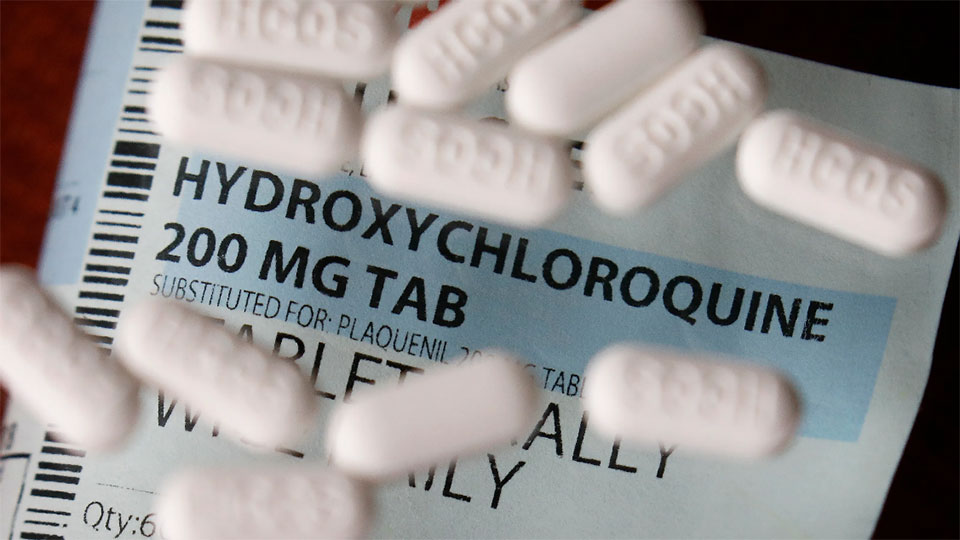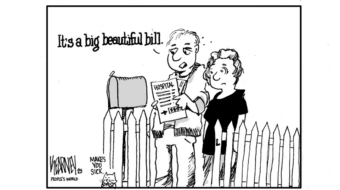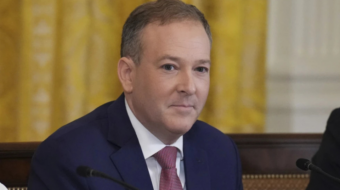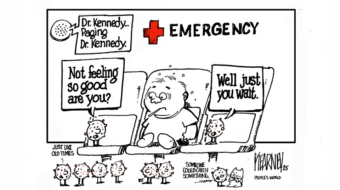
The people need science. That teaching is a legacy of pathologist Rudolph Virchow who was at the barricades in Berlin in 1848. A journal entry in that year of revolutions reads, “Medicine is a social science, and politics nothing but medicine on a grand scale.” The pioneering Virchow first pronounced upon the biological importance of cells in health and disease. He was called the “chief founder of modern scientific medicine” (William H. Welch, Johns Hopkins School of Medicine 1902).
Virchow inspires today’s imperative that the entitled classes not abandon science in the face of danger nor twist science to fit proprietary uses. This is the Virchow whose study of a typhus outbreak in Upper Silesia convinced him that class-based oppression—poverty and lack of education—was responsible for the epidemic, the Virchow who helped form the German Radical Party in 1884 and served in the Prussian and German parliaments.
Ask immunologist and virologist Rick Bright about science serving the people. That expert in preventing viral disease, particularly influenza, on April 21 was removed from his position in the Department of Health and Human Services. Bright was in charge of the Biomedical Advanced Research and Development Authority and of efforts to develop an anti-COVID 19 vaccine. He had 63 scientific articles to his credit.
Bright told the press that, “I believe this transfer was in response to my insistence that the government invest the billions of dollars allocated by Congress to address the COVID-19 pandemic into safe and scientifically-vetted solutions, and not in drugs, vaccines, and other technologies that lack scientific merit. I am speaking out because to combat this deadly virus, science—not politics or cronyism—has to lead the way.”
He added that, “contrary to misguided directives, I limited the broad use of chloroquine and hydroxychloroquine, promoted by the administration as a panacea, but which clearly lack scientific merit.”
Science has been a bit player in the U.S. government’s confrontation with the pandemic. President Trump’s anti-science attitudes are far from the whole story, although his cut-off of U.S. funding for the World Health Organization was as dangerous as it was symbolic.
That government failed to take steps that would have allowed scientific inquiry during the early stages of the pandemic. Early case-finding and tracking of contacts did not take place. Investigators lacked the raw material that might have allowed them to define the contours of an evolving epidemic, its special characteristics.
The fact of delay was clear on April 21 when a California medical examiner announced that COVID-19 had accounted for one death on Feb. 6 and another on Feb. 17. Neither victim had traveled outside the United States. The onset of their infections was presumably in mid-January. All along, authorities had regarded a Washington-state patient who tested positive on Feb. 26 as the first U.S. victim of community-acquired infection. Yet CDC director Robert Redfield, testifying before a congressional committee on March 11, revealed that some patients assumed to have died from influenza did die from COVID-19 infection.
Also, the administration’s China-bashing and even conspiracy theories about the origins of the pandemic testify to its dismissal of useful scientific research, particularly the findings of scientists throughout the world who know about the beginnings of the pandemic, in China.
British and German scientists “reconstructed the early ‘evolutionary paths’ of COVID-19 in humans.” A Cambridge University team “mapped some of the original spread of the new coronavirus through its mutations, which creates different viral lineages.” Virus genomes were studied “from across the world between Dec. 24, 2019, and March 4, 2020.”
The researchers categorized three types of COVID-19. The original virus identified in Wuhan was type A; its mutated versions showed up in the United States and Australia. Type B, predominating in Wuhan, stayed put in East Asia. Type C appeared only in Europe, Singapore, Hong Kong, and South Korea. The researchers “traced established infection routes: The mutations and viral lineages joined the dots between known cases.” Such information about the virus’s biologic behavior might have enabled public health officials to identify at-risk populations within the United States and abroad.
Lead author Peter Forster suggested to a reporter that in Wuhan “the first infection and spread among humans of COVID-19 occurred between mid-September and early December.” His disclosure has implications for U.S. military athletes participating in the “World Military Games” in Wuhan in late October. They were among 9,308 military athletes on hand from 100 countries. The athletes might have carried the virus with them on their return to the various nations.
Zoologist Peter Daszak, president of the New York-based EcoHealth Alliance, does research in China on inter-species sharing of viruses. He pointed out in 2013 that, “Coronaviruses evolve very rapidly [and] are exquisitely evolved to jump from one species to another.” At the time, he was reflecting on the SARS coronavirus epidemic of 10 years earlier.
He offered a suggestion that, if acted upon, might have prevented the COVID-19 pandemic. The cost, Daszak estimated, would have been “about $1.5 billion to discover all the viruses in mammals. I think that would be a great investment because once you have done it, you can develop vaccines and get ready with test kits to find the first stage of emergence and stop it.”
One lesson learned from the COVID-19 experience in the United States is that science must exist for the benefit of all people and not be left to the mercies of the rich and powerful. Another is that a government unable to give free rein to scientists like Dr. Bright is dangerous, apart from being useless.
Like free stuff? So do we. Here at People’s World, we believe strongly in the mission of keeping the labor and democratic movements informed so they are prepared for the struggle. But we need your help. While our content is free for readers (something we are proud of) it takes money — a lot of it — to produce and cover the stories you see in our pages. Only you, our readers and supporters, can keep us going. Only you can make sure we keep the news that matters free of paywalls and advertisements. If you enjoy reading People’s World and the stories we bring you, support our work by becoming a $5 monthly sustainer today.










